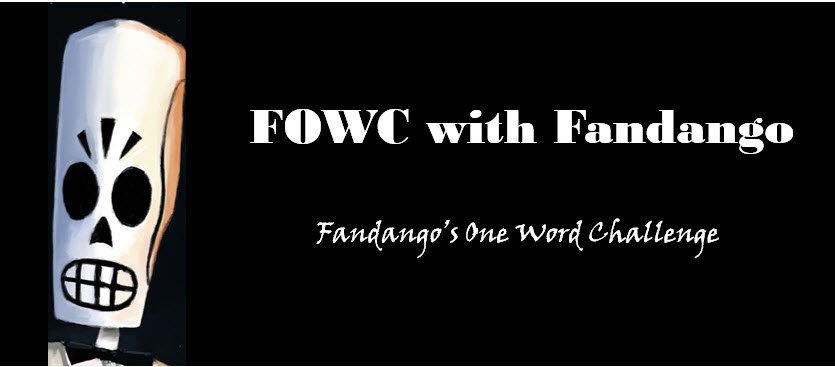For this week’s Thursday Inspiration prompt, Jim Adams has gone spiritual on us. He’s asked us to respond to this challenge, by either using the prompt word “believe,” or going with An image of Dr. Martin Luther King, whose birthday we will be celebrating in America this coming Monday, or by means of the song “We Shall Overcome.” I’m actually going to take a very different path and feature a post I wrote on my old blog on November 4, 2009. If you choose to read it, be aware that it’s a fairly long post (compared to what I typically write these days), and, as the title suggests, it doesn’t pay homage to Dr. King.

In this past Sunday’s [11/1/09] Boston Globe, “The Word” column discussed the common use of spelling mnemonics to help people remember how to spell certain words or to remember names. Just in case you aren’t familiar with the term “mnemonic,” it is a device, such as a rhyme or an acronym, used as an aid in remembering.
Do I need to tell you what an acronym is, too? Okay, it’s a word formed from the initial letters or groups of letters of words in a set phrase or series of words, such as OPEC for Organization of Petroleum Exporting Countries, NATO for North Atlantic Treaty Organization, or GOP for Grievously Obnoxious Pinheads (or something like that, I can’t remember).
Back to mnemonics, I learned early on the mnemonic “every good boy does fine” (or the variant, “every good boy deserves fudge”) to remember that the musical notes in the scale are: E, G, B, D, and F. Of course, I still can’t read sheet music, nor can I play a musical instrument, so while I know the notes in the scale, thanks to this handy mnemonic, it’s of little practical use to me.
Then there is the little trick to help you remember which way to tighten or loosen bolts: “righty tighty, lefty loosey.” That sure comes in handy on those many occasions when I have to tighten or loosen bolts and can’t seem to remember which way to turn the wrench.
As far as remembering spelling rules, who can forget learning “i before e, except after c”? The Globe article, written by Erin McKean, offers a lot of great spelling mnemonics, such as “separate has a parachute in it” or “cemetery has three e’s because you scream “e-e-e” when walking past one.” And here’s one: “Accommodate is broad enough to accommodate two c’s and two m’s.” My personal corollary to that one is, “accumulate” is only broad enough to accumulate one m.
One specific mnemonic the author mentioned caught my attention. “There is a lie in the middle of believe and belief.” I suppose this mnemonic is designed to help people who have forgotten the “i before e, except after c” rule when faced with having to spell “believe” or “belief.” But what struck me most, as a “non-believer,” was the religious implication of this mnemonic.
As an atheist, I am occasionally challenged by those who claim to be “true believers” in the sense that they believe that the Bible is the literal word of God and that it is an accurate reflection of the history of this planet and of humankind. I’m often accused by these “holier-than-thou” types of being ignorant. They seem to believe that my non-belief will result in my being condemned to eternal damnation and they consider me to be an immoral person and a lost soul because I don’t accept the Bible, Jesus, or God as being real and true.
Don’t get me wrong. I am not saying that religious beliefs are lies as much as I’m suggesting that such beliefs are based upon mythology and superstition. Hey, if believing in mythology and superstition, and that some ancient guy dressed in robes with a long, flowing, white beard is somewhere in the sky looking down at and watching out for you helps to get you through the day or makes your feel better, go for it.
The Bible, though, is most definitely not a history book or a science book. It is a book of allegory. By allegory, I mean it is the representation of abstract ideas or principles by characters, figures, or events in narrative, dramatic, or pictorial form. The Bible is a fascinating, inspirational work of literature, but it is not a book of facts and anyone who believes it to be an accurate and historical account of Earth and man, or to be the literal word of God, is buying the “lie” in “belief.”
Let me give you a concrete example of how this “lie” in belief is perpetuated. In a recent letter to the editor published in my local newspaper, a woman wrote:
Sin is a blood-borne disease that infects all of humanity and gets passed on from generation to generation. To erase and eradicate sin, it required a blood sacrifice. Jesus is the only acceptable sacrifice which satisfies God’s requirement for holy justice. God transferred our sinsvto Christ on the cross so that through his blood we have redemption.
Seriously, does this woman actually believe that “sin is a blood-borne disease” that requires a blood sacrifice to eradicate and only through Jesus can this blood sacrifice be accomplished?
Yikes! And there are still those who scoff at those who are members of the Church of the Flying Spaghetti Monster for their beliefs!



